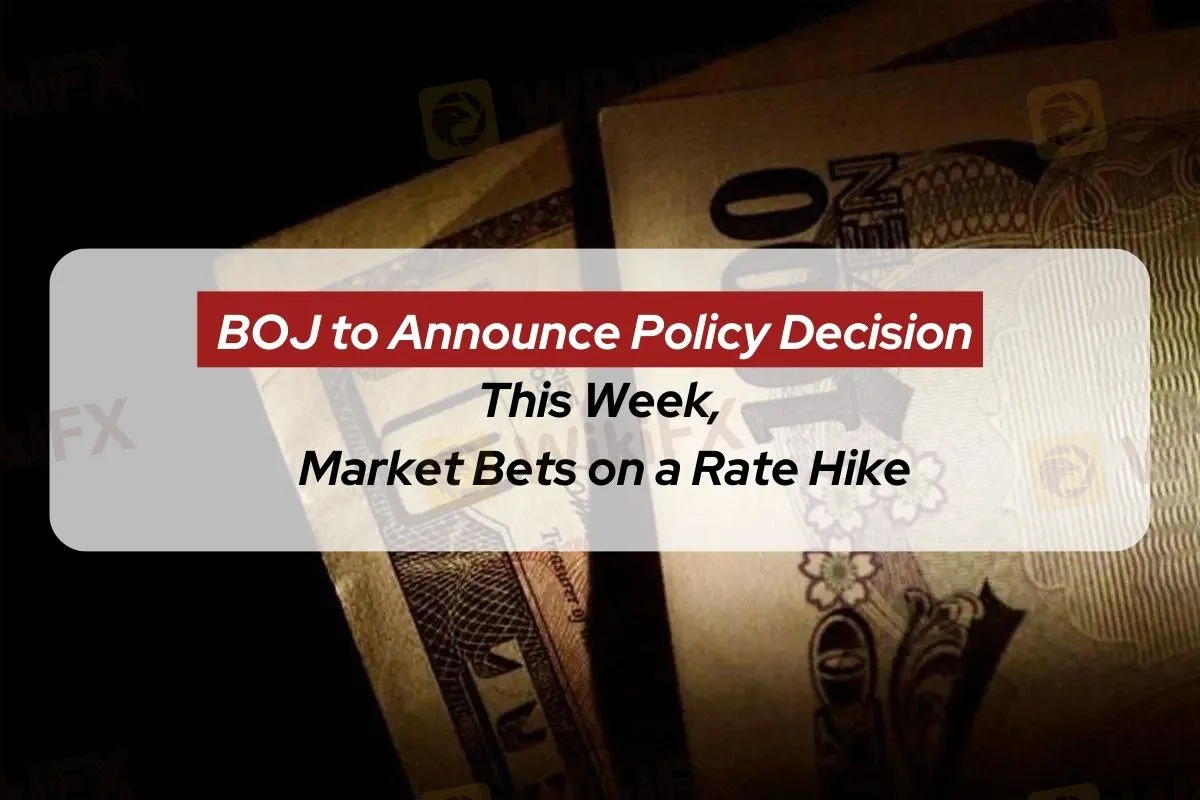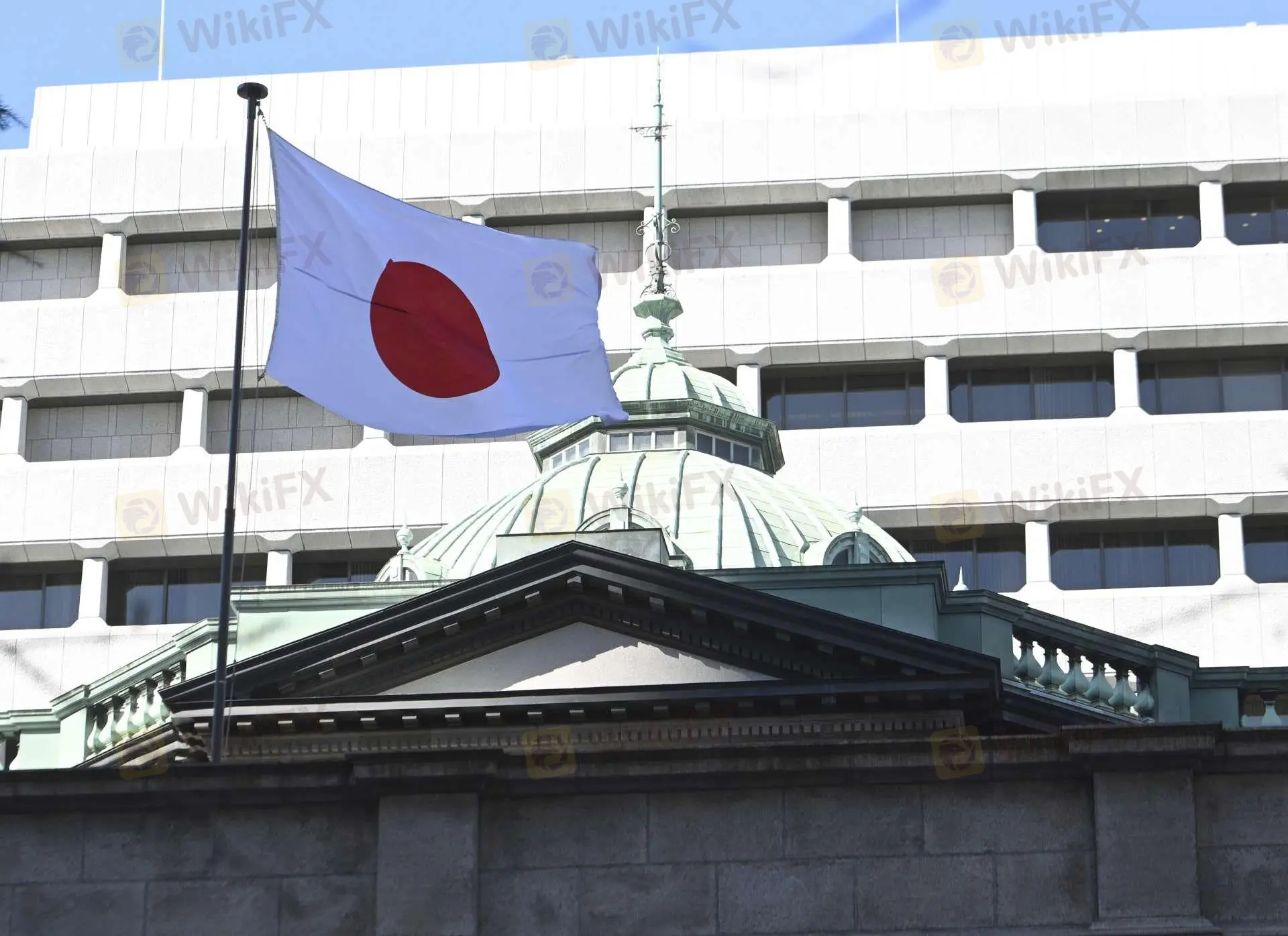简体中文
繁體中文
English
Pусский
日本語
ภาษาไทย
Tiếng Việt
Bahasa Indonesia
Español
हिन्दी
Filippiiniläinen
Français
Deutsch
Português
Türkçe
한국어
العربية
BOJ to Announce Policy Decision This Week, Market Bets on a Rate Hike
Abstract:The yen strengthens past 156 as markets anticipate a rate hike from the Bank of Japan this week.

Yen Strengthens Beyond 156 as Market Expects a Rate Hike
On January 24, the Bank of Japan (BOJ) will announce its latest policy decision, followed by a press conference by Governor Kazuo Ueda. Recent surveys indicate a near-unanimous market expectation of a rate hike this week. Overnight index swaps (OIS) pricing suggests a 99% probability of a hike, reflecting strong investor anticipation of tighter monetary policy. According to Bloomberg‘s latest survey, about 74% of economists expect the BOJ to raise rates by 25 basis points at this meeting, up from 52% in the previous survey. This strong expectation has been partially reflected in the yen’s performance over recent weeks, with the currency surging beyond the 156 level against the US dollar, hitting a recent high.

Nomura Securities suggests that the BOJ‘s rate hike will serve as a key driver for yen appreciation, especially as global central banks broadly tighten monetary policy. Following this hike, the BOJ may adopt a more flexible policy trajectory, further solidifying the yen’s position in global markets.
Wage Growth and Persistent Inflation Support Tightening Measures
The BOJ‘s latest regional economic report highlights structural labor shortages driving companies to raise wages. Many firms anticipate continuing wage hikes into 2025, providing strong support for the BOJ’s tightening policy. Meanwhile, domestic inflationary pressures remain evident. Data shows that Japan‘s core consumer price index (CPI) rose 2.7% year-on-year in November 2024, marking 39 consecutive months of growth. Notably, Tokyo’s December CPI growth accelerated to 3.0% year-on-year from 2.6% in November, with the month-on-month growth rising from 0.4% to 0.5%, indicating persistent price pressures.

Historically, wage growth and price increases in Japan have been closely linked. As spring labor negotiations approach, the expectation of wage hikes could further strengthen economic activity and continue to support inflation. These data points provide a solid foundation for the BOJ‘s tightening policy, reinforcing market bets on this week’s rate hike.
Key Hurdle: Global Market Volatility
While the market has high expectations for a BOJ rate hike this week, external market volatility could pose a potential obstacle. Uncertainty in international markets, particularly regarding possible U.S. economic and trade policies, could significantly influence the BOJs policy decisions. Reuters analysis suggests that if U.S. policy changes trigger significant market swings, the BOJ might reconsider the timing of a rate hike.

Additionally, BOJ Deputy Governor Ryozo Himino recently emphasized the importance of timing in monetary policy implementation, as it is critical for economic stability. He further stated that the board would base its discussions on Japans economic fundamentals while considering global market dynamics before making a final decision.
Should the BOJ hike rates as expected, the yen could strengthen further against the U.S. dollar and other major currencies. Analysts predict that yen appreciation will have a dual impact on Japans economy. On one hand, a stronger yen may weaken the competitiveness of export-driven industries, particularly in the automotive and electronics sectors. On the other hand, a strong yen could reduce the cost of imported energy and raw materials, potentially mitigating inflationary pressures.
Disclaimer:
The views in this article only represent the author's personal views, and do not constitute investment advice on this platform. This platform does not guarantee the accuracy, completeness and timeliness of the information in the article, and will not be liable for any loss caused by the use of or reliance on the information in the article.
Read more

BlackBull: A Closer Look at Its Licenses
When selecting a broker, understanding its regulatory standing is an important part of assessing overall reliability. For traders seeking to protect their capital, ensuring that a platform operates under recognised and stringent oversight can make all the difference. Keep reading to learn more about BlackBull and its licenses.

Dark Side of AETOS: They Don’t Want You to Know
AETOS is an Australia-based broker. All over the internet, you will find positive reviews about this broker, but no one is talking about the risks involved with AETOS. However, we have exposed the hidden risks associated with AETOS

Contemplating Investments in Quotex? Abandon Your Plan Before You Lose All Your Funds
Have you received calls from Quotex executives claiming to offer you returns of over 50% per month? Do you face both deposit and withdrawal issues at this company? Or have you faced a complete scam trading with this forex broker? You're not alone. Here is the exposure story.

15 Brokers FCA Says "Are Operating Illegally" Beware!
If a reputable regulator issues a warning about unlicensed brokers, it's important to take it seriously — whether you're a trader or an investor. Here is a list you can check out- be cautious and avoid getting involved with these scam brokers.
WikiFX Broker
Latest News
Global week ahead: Banking bellwethers and a tariffs waiting game
CNBC Daily Open: Solid earnings beats might mask tariff volatility these two weeks
Mastering Deriv Trading: Strategies and Insights for Successful Deriv Traders
BlackBull: A Closer Look at Its Licenses
Top Wall Street analysts are confident about the potential of these 3 stocks
Retirees are fleeing these 10 U.S. cities—most are in states where you need over $1 million to retire
In recent layoffs, AI's role may be bigger than companies are letting on
Stock futures are little changed as traders await big tech earnings, eye trade developments: Live updates
Asia markets set to open mixed as investors assess trade developments, await China benchmark rates
Asia markets trade mixed after China keeps key lending rates steady
Currency Calculator


